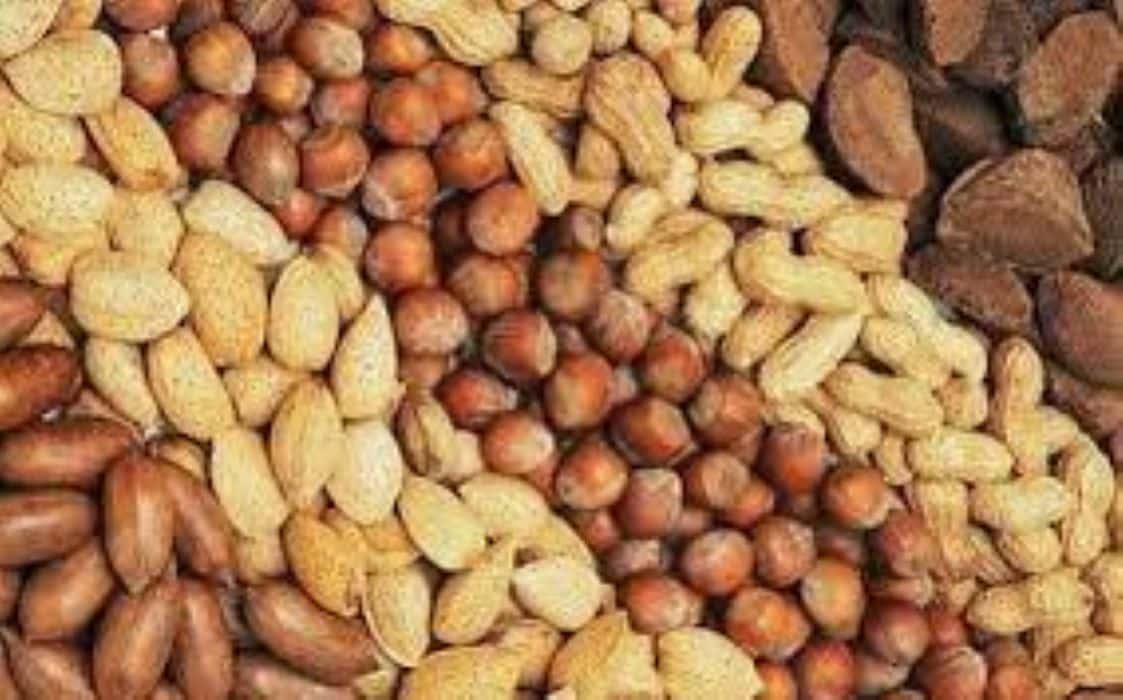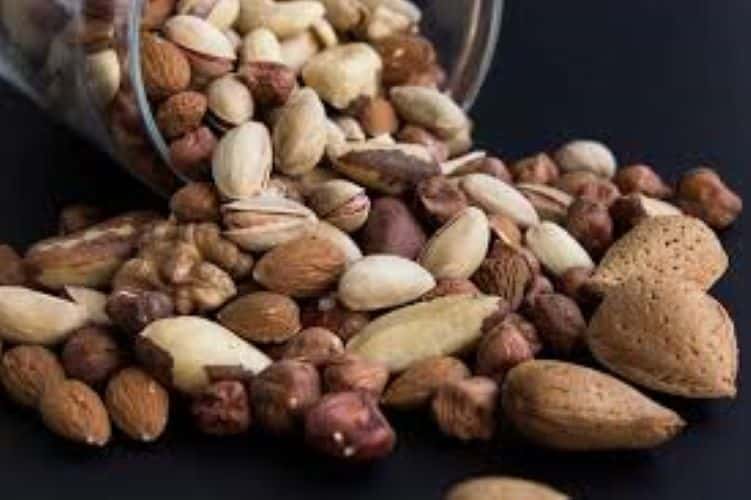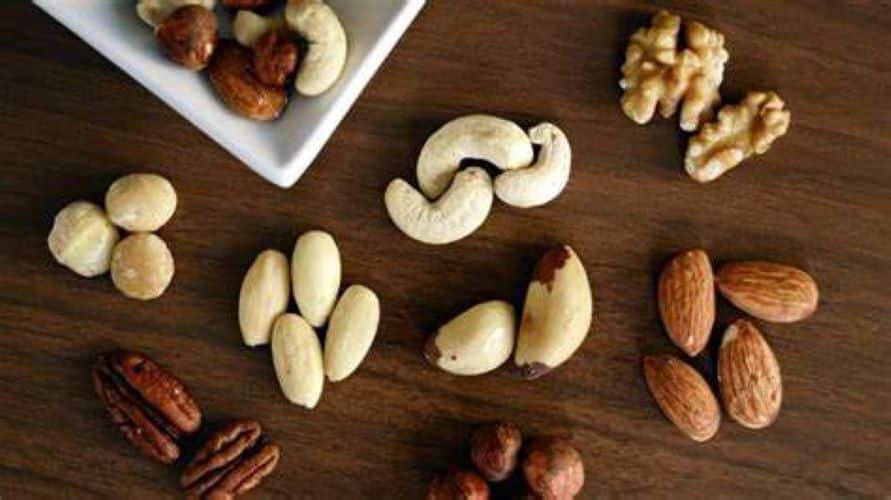Blog
Popularity of Nuts: Why We Love Them and Their Benefits

It’s time we faced the facts—nuts are good for you. And not just in a “they make a great snack” way, but in an “eating nuts may significantly improve your health” way. In this article, we’ll look at why they’re so popular and how they can make you healthier.
Nuts are a great source of nutrients and healthy fats.
Nuts are a great source of nutrients and healthy fats. They’re packed with protein, fiber, minerals and antioxidants. Eating nuts can help you feel fuller longer because they’re high in calories; one ounce (28 grams) of almonds has 190 calories — that’s almost as many as an ounce (28 grams) of cheese!
Nuts are also good sources of the essential fatty acids omega-3s and omega-6s, which may help lower your risk for heart disease. Omega-3s have been shown to reduce inflammation throughout the body while omega-6s are involved in cell signaling such as brain development during pregnancy or childhood
. Nuts are also a good source of vitamin E and other antioxidants that may help reduce your risk for heart disease. And they contain magnesium, which helps with muscle function and nerve transmission.
Nuts are also high in calories, which can be a drawback if you’re trying to lose weight. But that’s not necessarily a bad thing because they’re packed with nutrients and healthy fats that can keep you full longer . If you’re concerned about your weight, try eating nuts in moderation — about one ounce (28 grams) per day for most people.
Nuts are a healthy snack, but they’re also high in fat and calories. If you’re trying to lose weight, try eating nuts in moderation — about one ounce (28 grams) per day for most people.
Nuts also contain fiber, protein and minerals.
Nuts also contain fiber, protein and minerals.
Nuts are a good source of protein. They have healthy fats that help you feel full longer and keep you from snacking on other less-healthy foods between meals.
Nuts are good for your brain. Eating nuts may help protect against cognitive decline as we age, according to research from the Netherlands. It’s not clear whether it’s the fat or protein content of nuts that provides this benefit; however, both help lower inflammation in the body.
Nuts are a good source of minerals like magnesium (which regulates blood pressure), calcium (for strong bones) and zinc (to boost immune function). Even though nuts are high in fat, they still provide some heart-healthy monounsaturated fats that can lower LDL (“bad”) cholesterol levels while raising HDL (“good”) cholesterol levels when eaten in moderation (about 1 ounce per day). Nuts are good for your heart. Nuts can lower blood pressure and reduce the risk of heart disease by lowering LDL (“bad”) cholesterol levels while raising HDL (“good”) cholesterol levels when eaten in moderation (about 1 ounce per day).
The amino acid composition of nuts can help to lower cholesterol levels.
Nuts are a good source of protein, which is essential for maintaining muscle mass and keeping you feeling full. Protein can also help to regulate blood glucose levels, which is beneficial for people with diabetes or who are at risk for developing it. Finally, the amino acid composition of nuts can help to lower cholesterol levels.
Nuts are also a good source of fiber, which can help to promote regularity and lower cholesterol levels. 2. Peanuts: Peanuts are another great option for people with diabetes because they contain nutrients that help regulate blood sugar levels.
Peanuts are high in protein and contain essential fatty acids that can help to lower cholesterol levels. Peanuts are also a good source of fiber. 3. Hummus: Hummus is another delicious option for people with diabetes because it contains nutrients that help regulate blood sugar levels. Hummus is a good source of protein, which can help to maintain muscle mass and keep you feeling full.
Hummus also contains fiber, which can help to promote regularity and lower cholesterol levels. Hummus is a good source of iron, which helps to transport oxygen throughout the body.
4. Soybeans: Soybeans are another great option for people with diabetes because they contain nutrients that help regulate blood sugar levels. They are high in protein and contain essential fatty acids that can help to lower cholesterol levels. Soybeans are also a good source of fiber.
Studies show that nut consumption may reduce the risk of cardiovascular disease.
Nuts are a good source of protein, fiber and monounsaturated fats. Nuts also contain magnesium, which helps to lower blood pressure; arginine (an amino acid), which helps to lower cholesterol; vitamin E, which protects the heart from oxidative damage; calcium and potassium that may help prevent irregular heartbeat; phytosterols (plant sterols) that help reduce LDL (“bad”) cholesterol levels in the blood while increasing HDL (“good”) cholesterol levels.
Studies show that nut consumption may reduce the risk of cardiovascular disease by as much as 30 percent compared to those who do not eat nuts regularly.
The nuts that are best for you are almonds, cashews, pistachios and walnuts. Peanuts are legumes and should not be considered a nut because they contain fatty acids that can damage your heart health.
Nuts are a good source of protein and fiber. They also contain monounsaturated fats, which help lower cholesterol levels and reduce blood pressure in people with hypertension. Nuts may also improve blood sugar control, according to some studies.
The American Heart Association recommends eating about five servings of nuts per week in place of less healthy snacks such as chips and candy bars. Nuts are also a great source of fiber, magnesium (which helps lower blood pressure), vitamin E (which protects the heart from oxidative damage), calcium (which may help prevent irregular heartbeat) and potassium (which may help prevent high blood pressure)
A few nuts can turn a meal into a satisfying snack.
Nuts are an easy way to increase your protein intake, which is important for building muscle and losing weight. They’re also a good source of fiber, which helps you feel full longer. Nuts are portable and can be eaten on-the-go, making them ideal for snacks or even meals when paired with other ingredients. Plus, they’re delicious! You can use them in desserts like ice cream or pie crusts–or eat them as they are straight out of the bag (just make sure it’s not rancid).
Nuts have been linked to weight loss, as well. In a study published in the Journal of Nutrition, researchers found that people who ate nuts at least five times per week lost more weight than those who didn’t eat nuts at all.
Nuts are also rich in healthy fats that can help you feel full longer and control your appetite. And they’re a good source of fiber, which helps lower “bad” LDL cholesterol and reduces blood sugar levels.
Eating nuts also helps reduce your risk of developing heart disease and diabetes. They’re a great source of magnesium, which can help lower blood pressure levels and decrease the risk of stroke. Nuts are also high in vitamin E, which has been shown to protect against certain types of cancer.
Nuts are a great source of many nutrients, including:
Nuts are an easy way to add more plant foods to your diet.
Nuts are a great source of nutrients. They’re high in protein and healthy fats, and they also contain fiber, vitamin E and magnesium. Nuts are an easy way to add more plant foods to your diet–and if you include them as part of a snack or meal, they can help keep you full for longer than sugary snacks would (and without the sugar crash afterward).
Nuts are easy to add to meals or snacks because they’re portable and don’t spoil quickly like other foods do when left out at room temperature for too long (though we do recommend keeping some airtight containers on hand). If you have a busy schedule that makes it difficult for you to eat healthily all day long every day–or if there just isn’t enough time in the day between work meetings and errands–nuts are an ideal option since all it takes is one quick stop at the grocery store before heading home from work!
Nuts are also great because they’re so versatile. You can add them to just about any meal or snack, from a salad to yogurt and even cereal! They’re also easy to transport if you’re going on a weekend trip or traveling for work.
Nuts are also an excellent source of protein, which helps to keep you feeling full for longer than other snacks would (and without the sugar crash afterward). They’re also packed with healthy fats that can help improve your memory and boost brain function.
Nut lovers rejoice! Here’s why nuts are good for you
- Nuts are a great source of nutrients. They contain high levels of monounsaturated fats and can help to lower cholesterol levels, as well as providing protein, fiber and minerals.
- The amino acid composition of nuts can help to lower blood pressure and improve blood sugar control.
- Studies show that nut consumption may reduce the risk of cardiovascular disease by up to 30%.
The high levels of antioxidants in nuts may also help to protect against cancer by slowing down the progression of tumors. Nuts are a good source of vitamin E, which helps to reduce oxidative stress and prevent cell damage.
The high levels of magnesium found in nuts may help to reduce the risk of diabetes, heart disease and asthma. They also contain good amounts of zinc, which has been shown to lower cholesterol levels.
Nuts are high in calories, so it’s important to eat them in moderation. For example, just one ounce of pistachios contains 188 calories and 16 grams of fat.





